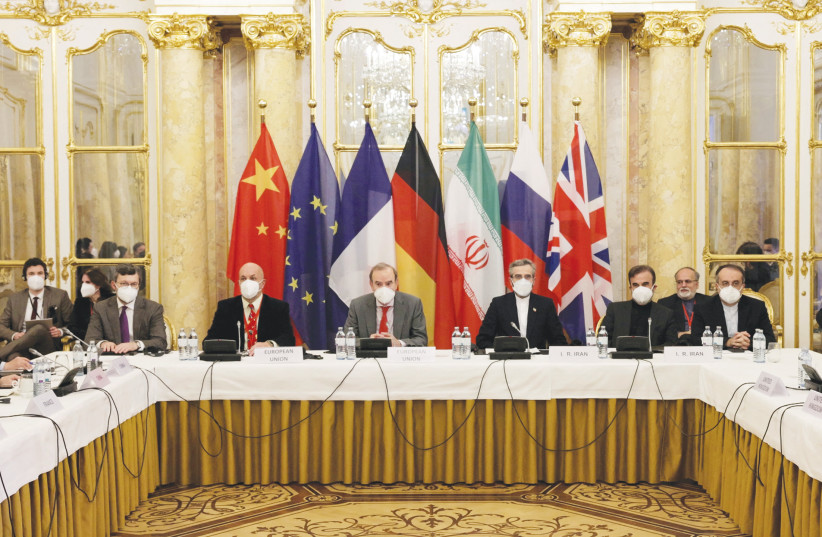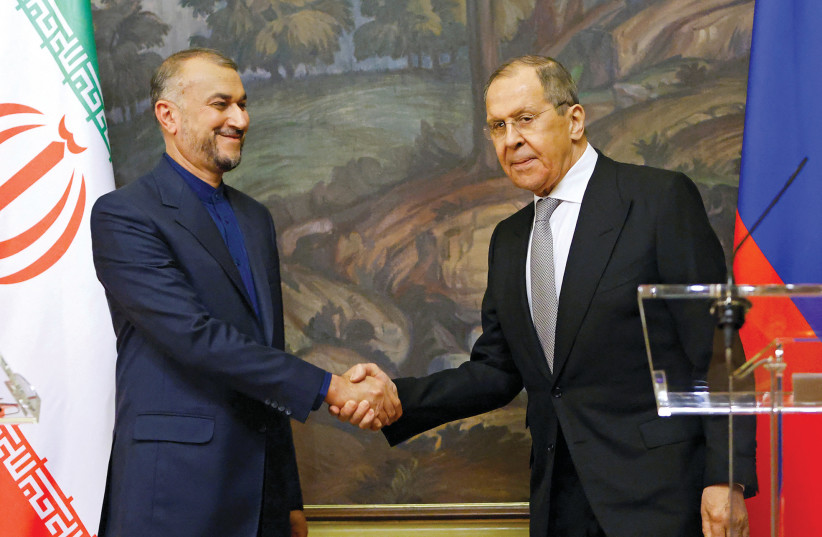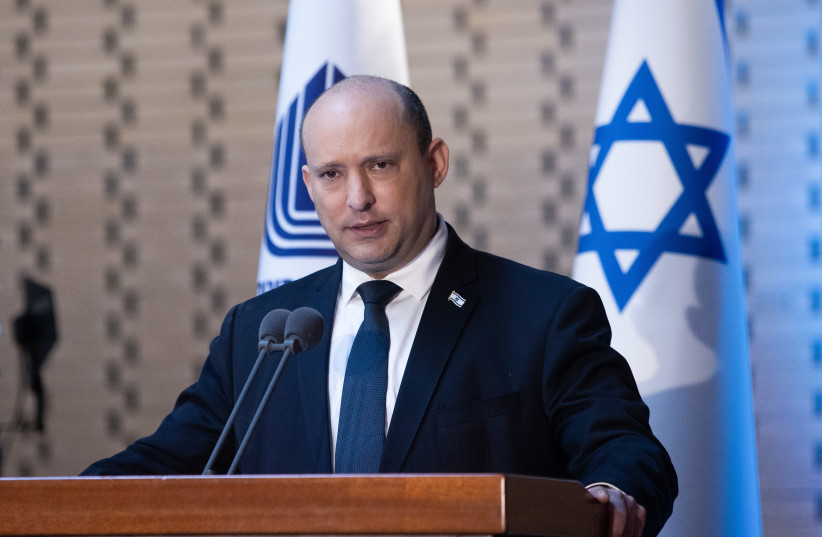On Friday, Prime Minister Naftali Bennett and Foreign Minister Yair Lapid broke their long silence on Iran and admonished US President Joe Biden for considering removing the Islamic Revolutionary Guard Corps from the list of Foreign Terrorist Organizations.
“We find it hard to believe that the IRGC’s designation as a terrorist organization will be removed in exchange for a promise not to harm Americans,” the two politicians said. “The fight against terrorism is a global one, a shared mission of the entire world.”
“We believe that the United States will not abandon its closest allies in exchange for empty promises from terrorists,” they said.
It was a refreshing statement that showed that Israel had not completely lost its voice in the fight against the coming Iran deal and the concessions that are being planned, which will strengthen and bolster the Islamic Republic.
It came after weeks of quiet about the Islamic Republic during which Israeli leaders occasionally spoke out against it but almost never mentioned the talks in Vienna or Biden’s race to return to the 2015 deal.

Will it work? That remains to be seen. On the one hand, it will show the world that Israel does not sit by as Iran pursues a nuclear weapon and that Israeli leaders have not lost their voice.
On the other hand, it might not be a complete change of strategy. Israel has until now explained its quiet as part of a desire to be able to work with the US and Europe after whatever deal is reached – and if it is not possible to stop the deal anyway, then why publicly attack it?
The answer is simple – and it is about respect. The world watches as Israel remains silent ahead of an imminent deal in Vienna. It knows that an Iran with nuclear weapons is a strategic and possibly existential threat to Israel. By staying quiet, the Jewish state runs the risk of not being taken seriously the next time it wants to warn about something.
You were quiet about an existential threat, Israel will be told. Why should we listen to you now?
In other words, this silence is a sign of weakness and not strength.

Additionally, the Russian invasion of Ukraine is precisely the opportunity to use to warn of a deal with Iran. One of the lessons from this war is that the West is only willing to go so far in the event of a conflict that leads to the deaths of innocent civilians.
This is because the world does not want a war with Russia, a country with a powerful military and a massive nuclear arsenal. In other words, because Russia is so powerful, the world’s options are limited.
This explains the exact problem with Iran. If the world is already afraid to confront Iran, what will it do once the country has nuclear weapons?
The answer is obvious – and this is the problem with what is happening in Vienna. Instead of confronting Iran now – when it is weaker and more vulnerable – the world wants to make a deal that will then make it almost impossible to do anything.
Which is all why Israel needs to do everything now to stop this deal from happening because the moment it happens, the world will lose interest and will constantly look at Israel as a nuisance when it tries to warn that the deal is not being adhered to or that Tehran is doing something new to undermine regional stability.

After all, no one really believes that Iran will forfeit its desire to obtain nuclear capability or will suddenly cease its support for violent terrorist proxies in the Middle East. It’s just about kicking the can down the road – and if the world can do that now and not have to think about Iran for some time, then so be it.
Israel has no choice but to stand – even on its own – as the voice of reason throughout this process. This is not so it can later tell people “we told you so,” but because it needs, even now, to hold up a mirror for the world and explain what the consequences of its actions will be.
